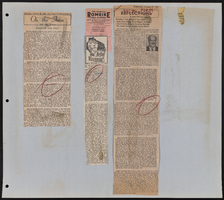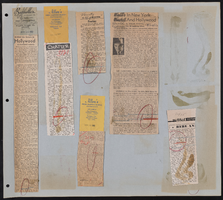Search the Special Collections and Archives Portal
Search Results
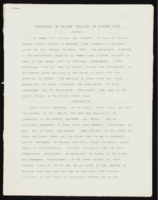
"Stereotypes of Mexicans Projected in Selected Film": manuscript draft by Roosevelt Fitzgerald
Date
Archival Collection
Description
From the Roosevelt Fitzgerald Professional Papers (MS-01082) -- Unpublished manuscripts file.
Text
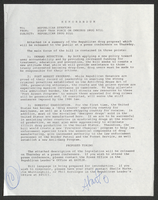
Anti-Drug Abuse Act: memoranda, letters, resolution, and congressional record
Date
Archival Collection
Description
Folder of documents from the Senator Chic Hecht Political Papers (MS-00003) -- Subject Files -- Judiciary file.
Text
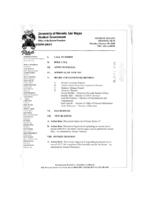
Meeting minutes for Consolidated Student Senate, University of Nevada, Las Vegas, October 30, 2000
Date
Archival Collection
Description
Text
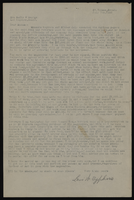
Correspondence, Levi Syphus to Sadie George
Date
Archival Collection
Description
Text

Emilia Marquez oral history interview: transcript
Date
Archival Collection
Description
Oral history interview with Emilia Marquez conducted by Maribel Estrada Calderón on July 5, 2019 for the Latinx Voices of Southern Nevada Oral History Project. Claytee D. White and Emily Lucile are also present during the interview. Emilia Marquez was born in the United Stated and raised in Alexandria, Virginia, where her father worked as a bricklayer, until the age of twelve, when her father decided to move the family back to Uruguay. She describes acclimating to her new life in middle school and her shift from being perceived as an outsider in Uruguay to accepting Uruguay as home. She describes life in Uruguay and the positions that her family held while living there. After meeting and marrying her husband they trained to work in a casino. She trained as a slot machine operator, and her husband trained as a dealer. This eventually led them to leave Uruguay for the U.S. After the encouragement of her father and mother, she moved with her mother to Las Vegas to work in the casino industry. She describes working as a change person at the Luxor before moving to the newly opened Palms, where she worked until she left it to work at the Wynn. She ends the interview talking about various Uruguayan dishes and traditions, and a brief history of Uruguay. Subjects discussed in this interview: Uruguay, immigration, Las Vegas Strip, Latinx, Luxor.
Text
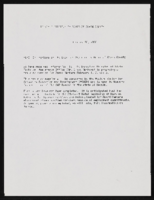
Economic Opportunity Board of Clark County (Nev.): memos, agendas, and meeting minutes
Date
Archival Collection
Description
From the Clark County Economic Opportunity Board Records -- Series I. Administrative. This folder contains memos, agendas and minutes from meetings of the Clark County Economic Opportunity Board from January 1968 through June 1968.
Text
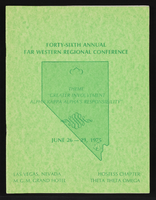
Alpha Kappa Alpha Sorority 46th Far West Regional conference program (M.G.M. Grand)
Date
Archival Collection
Description
From the Alpha Kappa Alpha Sorority, Incorporated, Theta Theta Omega Chapter Records (MS-01014) -- Ivy Leaf magazines and event souvenir programs file.
Text
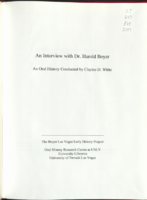
Transcript of interview with Dr. Harold Boyer by Claytee D. White, November 15, 2000
Date
Archival Collection
Description
Text

